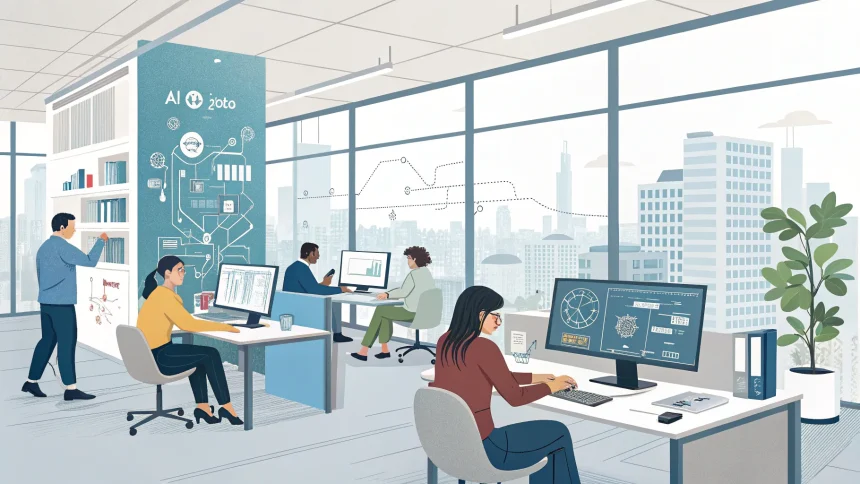OpenAI has begun development of a new jobs platform focused on artificial intelligence, marking the company’s latest move into application services while simultaneously addressing the growing demand for AI skills in the workforce.
The initiative comes as part of OpenAI’s broader strategy to increase AI literacy across industries. By creating a dedicated employment platform, the company aims to connect organizations seeking AI talent with qualified professionals who possess the specialized skills needed in this rapidly growing field.
Expanding Beyond Core AI Development
This jobs platform represents a strategic expansion for OpenAI, which has primarily been known for developing foundational AI models like GPT-4 and DALL-E. The company appears to be diversifying its offerings by moving into application-based services that directly connect with end users and businesses.
Industry analysts suggest this move indicates OpenAI’s interest in creating a more complete ecosystem around its AI technologies rather than focusing solely on the underlying models. The jobs platform could serve as a practical extension of OpenAI’s technology, helping to address real-world implementation challenges.
Addressing the AI Skills Gap
The development of an AI-centered jobs platform comes at a time when organizations across sectors are struggling to find qualified AI talent. According to recent industry reports, the demand for professionals with AI expertise far exceeds the current supply.
OpenAI’s platform may help bridge this gap by:
- Creating a centralized marketplace for AI-specific roles
- Connecting employers with pre-qualified candidates
- Potentially offering skills assessment or certification options
- Providing resources for AI education and training
Building AI Literacy
Beyond simply matching employers with job seekers, OpenAI’s initiative appears focused on the broader goal of expanding AI literacy. This suggests the platform may include educational components or resources to help professionals develop the skills needed to work effectively with AI technologies.
The focus on literacy indicates OpenAI recognizes that widespread adoption of AI requires not just technical experts but also professionals across various roles who understand how to work alongside and leverage AI systems effectively.
This approach aligns with growing calls from education and industry leaders for more comprehensive AI education at all levels, from technical implementation to ethical considerations and practical applications.
Strategic Implications
For OpenAI, the jobs platform represents more than just a new product offering. It potentially creates a feedback loop that benefits the company’s core mission. By helping place more AI professionals in the workforce, OpenAI can accelerate the adoption of its technologies while gathering valuable insights about real-world implementation challenges.
The move also positions OpenAI more directly in competition with professional networking platforms that have traditionally dominated the tech recruitment space, such as LinkedIn and specialized tech job boards.
While details about the platform’s specific features, launch timeline, and business model remain limited, the initiative signals OpenAI’s commitment to playing a more active role in shaping how AI technologies are integrated into the workforce.
As AI continues to transform industries, platforms that can effectively connect organizations with qualified talent will likely play a critical role in determining how quickly and effectively these technologies can be implemented. OpenAI’s entry into this space suggests the company sees workforce development as a key factor in the broader adoption of artificial intelligence.









